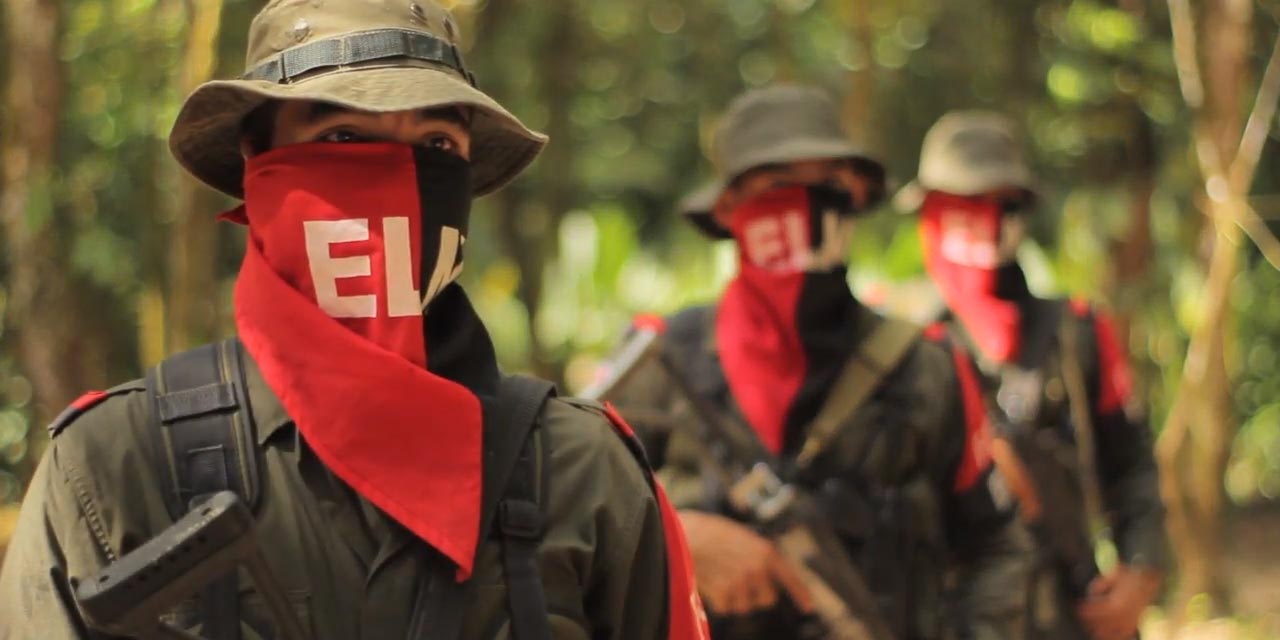Colombia’s ELN rebels form a threat to regional stability, foreign ministers from the Americas said after an anti-terrorism summit in Bogota on Monday.
In a joint statement, the ministers said that the 55-year-old guerrilla group “perpetrates terrorist acts and criminal activities of unacceptable violence and obtains funding from illegal sources.”
The ELN would be a threat to regional stability because the guerrillas “obtain their financing from illicit activities related to transnational organized crime” and “may use situations of institutional weakness, internal conflict or other similar situations, such as in Venezuela, to promote terrorist acts and criminal activities in the region.”
The group that formed in 1964 has been considered a terrorist group by the United States and Europe for decades and has been active in Venezuela since the 1990s. The guerrillas are also active along the border with Ecuador.
A 200-year history lesson on the ELN’s war with Colombia’s state
The growing ELN threat
The ELN has taken advantage of a peace process with the now-defunct FARC guerrilla group that began in 2016 and chaos inside Colombia’s national army to expand its territorial control inside its native country, according to local observers.
According to the International Crisis Group (ICG), the guerrillas have also taken advantage of an ongoing crisis in Venezuela to expand mining activity to fund their war against the Colombian government.
Cross-border movements of the Colombian guerrilla National Liberation Army (ELN) or dissident factions of the Revolutionary Armed Forces of Colombia (FARC) operating in the mining regions could provoke a flare-up between Colombian and Venezuelan armed forces. Given the animosity between the two states and Venezuelan support for the ELN, Bogota may well perceive future ELN attacks on Colombian soil as a strike ordered by Caracas.
International Crisis Group
The ELN’s international allies
 The ELN has never carried out terrorist attacks outside of Colombia, but is one of a number of illegal armed groups that add instability to tensions with Venezuela, particularly because of alleged friendly ties with the neighboring country’s armed forces.
The ELN has never carried out terrorist attacks outside of Colombia, but is one of a number of illegal armed groups that add instability to tensions with Venezuela, particularly because of alleged friendly ties with the neighboring country’s armed forces.
According to Colombian police, the group would also have ties to Mexico’s Sinaloa Cartel and Ecuadorean drug traffickers.
In January 2019, Ecuador’s armed forced entered a high state of alert along the Colombian border amid alleged indications of ELN attacks that turned out to be a false alarm.
The rebels and the Colombian government were engaged in peace talks from 2017 until they were suspended by President Ivan Duque when he took office in 2018.
A subsequent increase in military efforts to decrease the guerrilla group’s control over parts of the countryside have been virtually fruitless.



